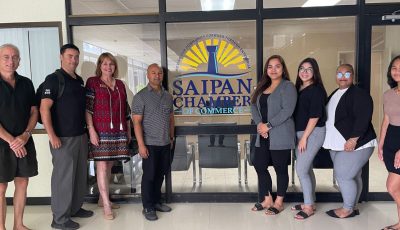Labor: Education to play ‘crucial’ role in CW transition
The importance of realigning education in the CNMI with workforce training goals were underscored in a CNMI Department of Labor report on “Foreign Worker Transition Initiatives.”
Finalized in April, this report includes, among other initiatives, an emphasis on job fairs and enforcement of labor rules.
A drastic shortfall of local capacity is expected when the contract worker period expires in 2019. With this in the horizon, public and private agencies have discussed efforts to meet this impending change.
Labor, under the education initiative section of its report, highlighted the Public School System’s Cooperative Program, or “co-op” program as “crucial” to enable businesses to cope with the projected worker shortfall.
Co-op is designed to help prepare high school graduates for the job market. Students participate on-site as a “trainee” at a business.
Labor said the “overall numbers of student placement in the co-op program are more attracted to the private sector industry.
“The co-op program offers high school students a competitive advantage in the job market by providing them with on-site training and workforce skills, while reducing training costs to employers.
“This is a crucial element to the successful transition of the CNMI job market post-2019, as 15 [percent] of high school graduates enter the labor force following graduation,” the report said.
Turning to the Northern Marianas College, Labor noted that 61 percent of CNMI public school graduates enter college.
“Many choose to attend” NMC, Labor said, noting that NMC’s Strategic Plan for 2015-2020 helps build the “necessary and professional skills of the CNMI labor force.”
The college’s five-year goals are to increase the college’s relevance to the CNMI workforce and community needs, ensure continued accreditation, accelerate time to complete, improve student success and support, and strengthen operations and resource development.
Labor also highlighted the Northern Marianas Technical Institute’s more than a dozen programs that are “aligned with the needs of the CNMI” to train and prepare U.S citizens and other permanent residents for jobs in the local economy.



























